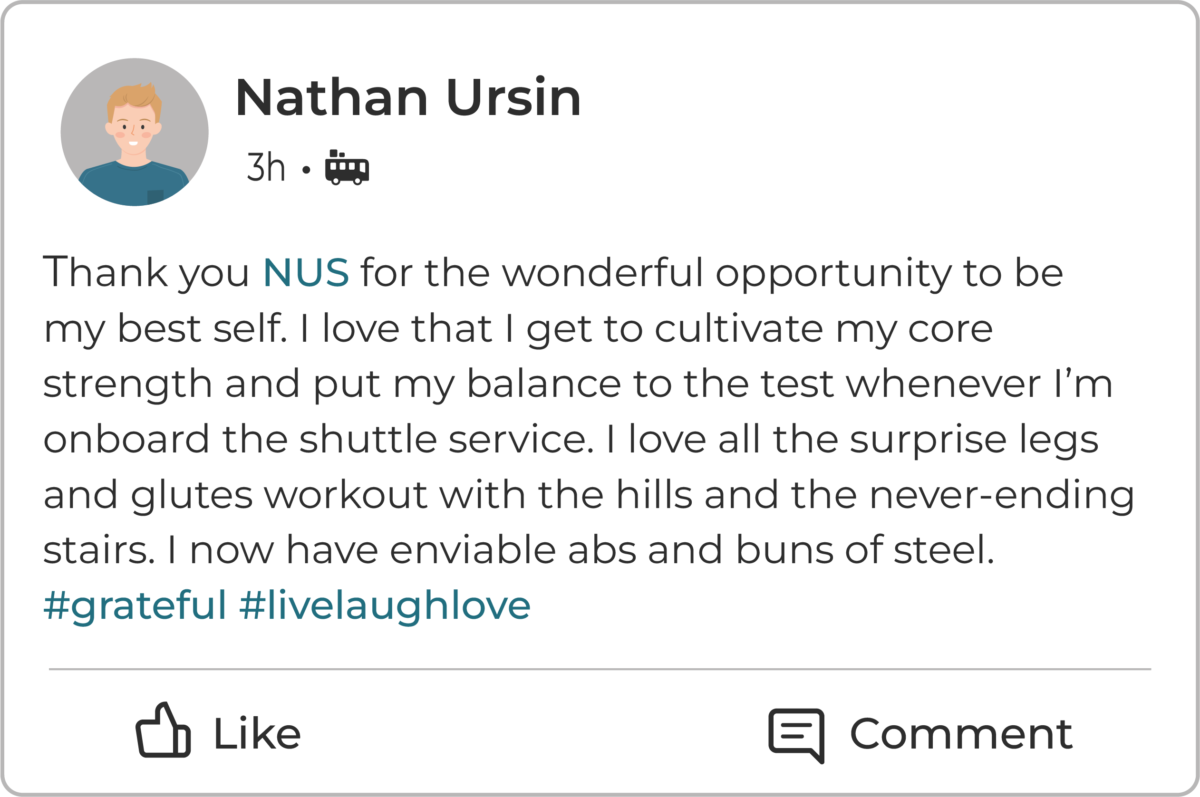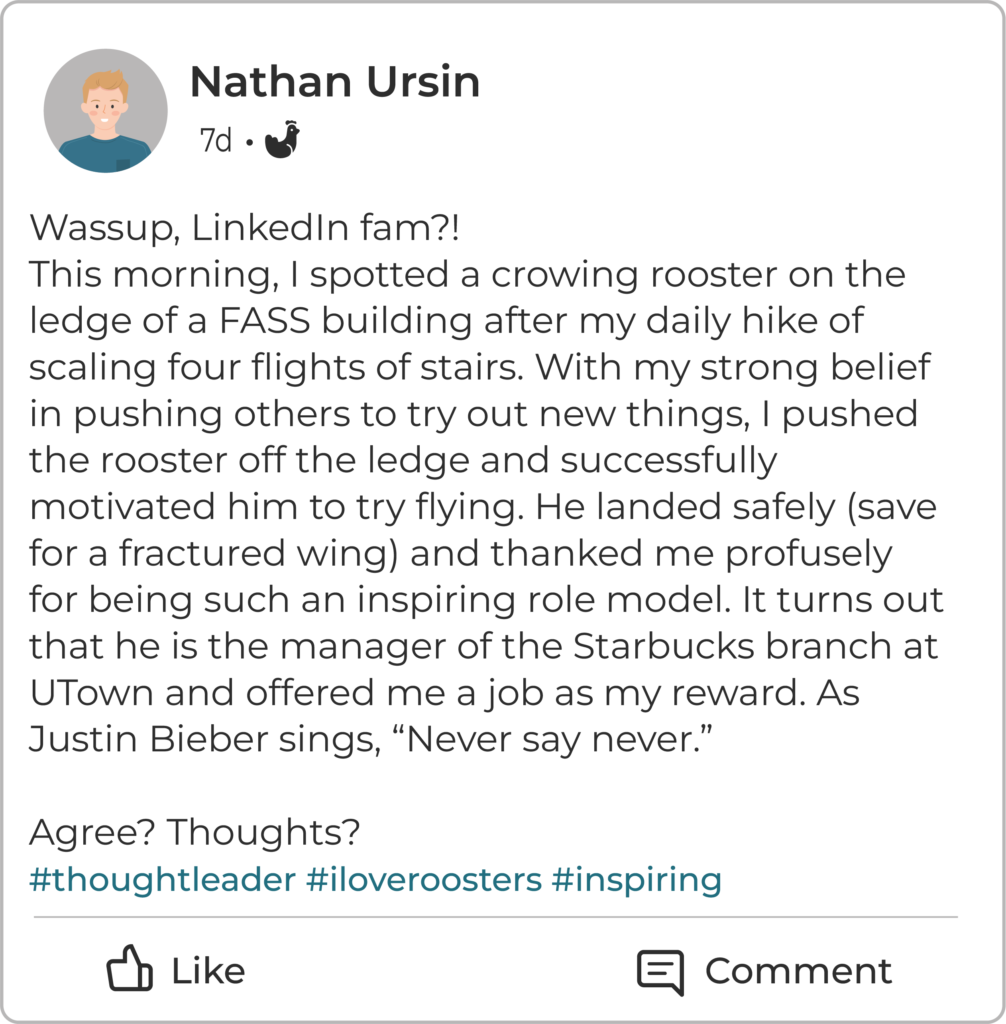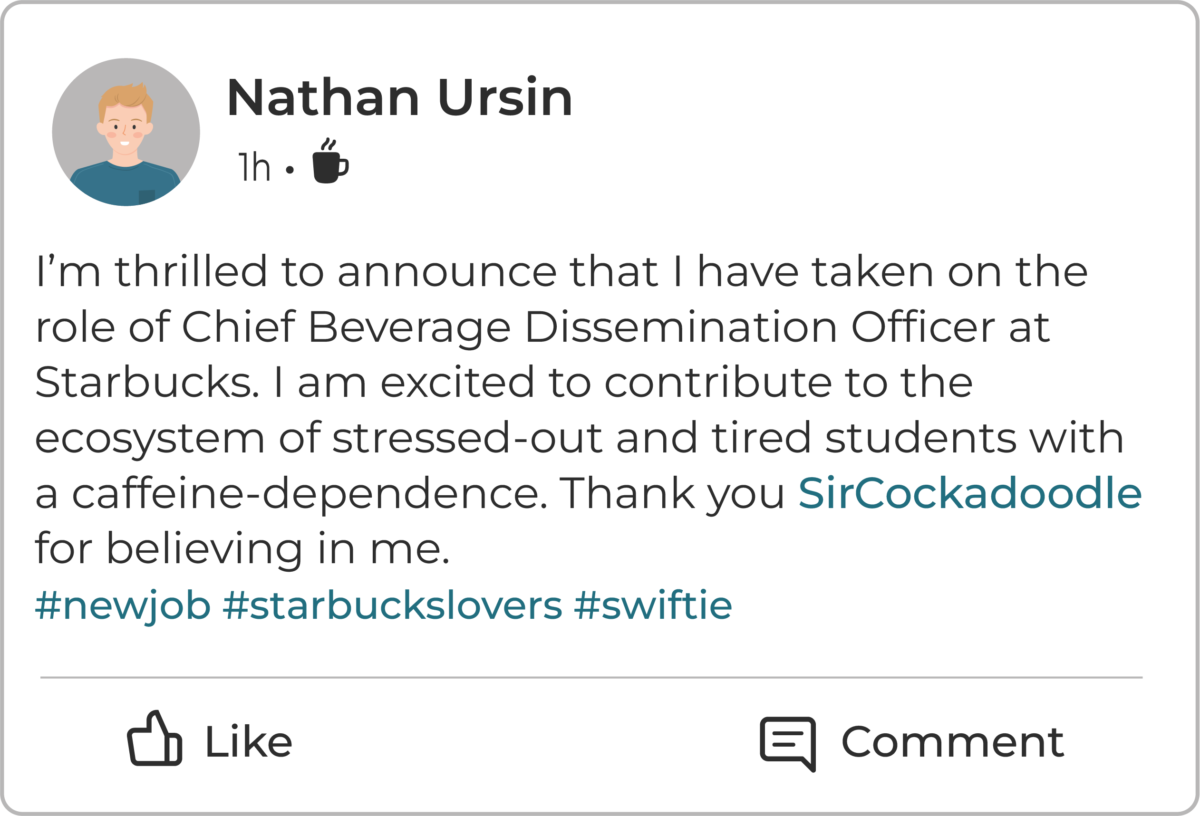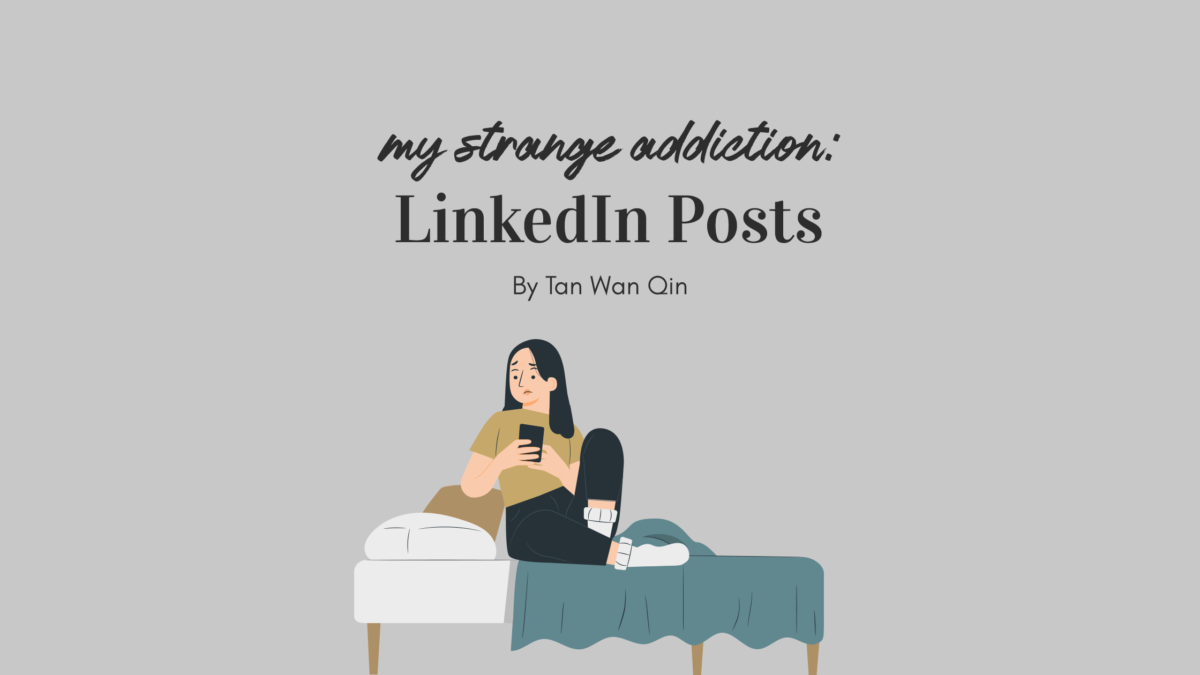Out of the million-and-one things to be addicted to these days (Wordle, Bridgerton, TikTok, you name it), I’m addicted to LinkedIn. Yes, you read that right. I’m addicted to the professional networking site and I’m not proud of it.
Conditioning is, unfortunately, a very real thing. Every time I type ‘L’ in my web browser, my fingers instinctively follow it up with an ‘-inkedin’, instead of typing ‘-umiNUS’ like every good NUS student should. So, my attempts to download and review my course materials often lead to me being distracted by my LinkedIn feed. Sorry, Professors! But hey, I’m doing the career counsellors at CFG proud by thinking long-term and working towards my future career, right?
So what’s the deal with LinkedIn? In recent years, there have been (justified) crusades against social media platforms and their insidious effects on our mental health. However, LinkedIn is often left out of the picture. Touted as a network to facilitate career development, the platform’s association with ambition and self-improvement—lofty and admirable pursuits that our society values—seems to lend itself immunity from criticism.
Yet, in one of the few studies on the mental health impact of LinkedIn, participants who use the site at least once a week were found to be much more likely to suffer from increased depression and anxiety as compared to non-users.
(Source)
This is not surprising at all when we consider the nature of LinkedIn. While its purpose and target demographic might be different from other social media platforms, LinkedIn is no different in how it encourages users to carefully curate how they are being presented on an online space. Much like the photos of aesthetically pleasing food we post on Instagram, the tweets that demonstrate our passion for social justice, and our insanely productive daily routines on TikTok, our LinkedIn posts serve to present ourselves in the most flattering light. We wax poetic about how much we love working at a company; only to turn around and leave anonymous Glassdoor reviews on the toxicity of the workplace. We share anecdotes and personal stories; but they all boil down to virtue-signalling, so that we can show potential employers that we possess desirable traits such as positivity, perseverance, and compassion. We even think twice whenever we click ‘like’ on a post because it appears on the feeds of all our connections.
If you’ve ever wondered how you can be part of this phenomenon of ‘personal branding’ and ‘thought leadership’, here’s some source material for your next LinkedIn post.



P.S. You can find more inspiration with this content generator and this subreddit
I joke, but with such a sizable portion of the workforce on LinkedIn, it’s understandable why many of us feel the need to maintain a presence on the site (and an impressive one at that). With more than three million users in Singapore and 810 million members worldwide, and the promise of being headhunted by recruiters who will slide into your DMs on LinkedIn, FOMO kicks in. It feels like one will miss out on exclusive job opportunities and be at a disadvantage, career-wise, if they were to have a lack-lustre or non-existent LinkedIn profile.
When so much of our identity and self-worth is tied to our job title and our salary, we tend to compare ourselves with others on the basis of these external markers. As a result, feelings of inadequacy run rampant whenever we go on LinkedIn. I question my abilities when I see a course mate announce that they’ve bagged a coveted internship opportunity while I’m fretting over rejections. I feel bad about myself when others of my age seem to have their life together and their career all figured out.
As you’re reading this, I’m probably still lurking around my LinkedIn feed. In my (and LinkedIn’s) defence, not all of the posts on my feed induce cringe or self-loathing. In fact, I extract quite a bit of value from my time surfing the site. Cramped between the many job announcements and pseudo-motivational quotes are nuggets of gold—an illuminating report being shared, an earnest piece of career advice from an industry veteran, or even a heartfelt account of one’s personal struggles.
The world we live in today is loud and distracting, and I’m still learning to tune out some of the noise. I can’t stop people from posting eye roll-worthy things, but I have the power to not give them the time of my day. In a bid to improve my experience with LinkedIn, I shall start culling my ‘follow list’. To pay homage to the many uninspiring LinkedIn thought leaders, I shall end this article with the obligatory food for thought to my readers:
(Source)


